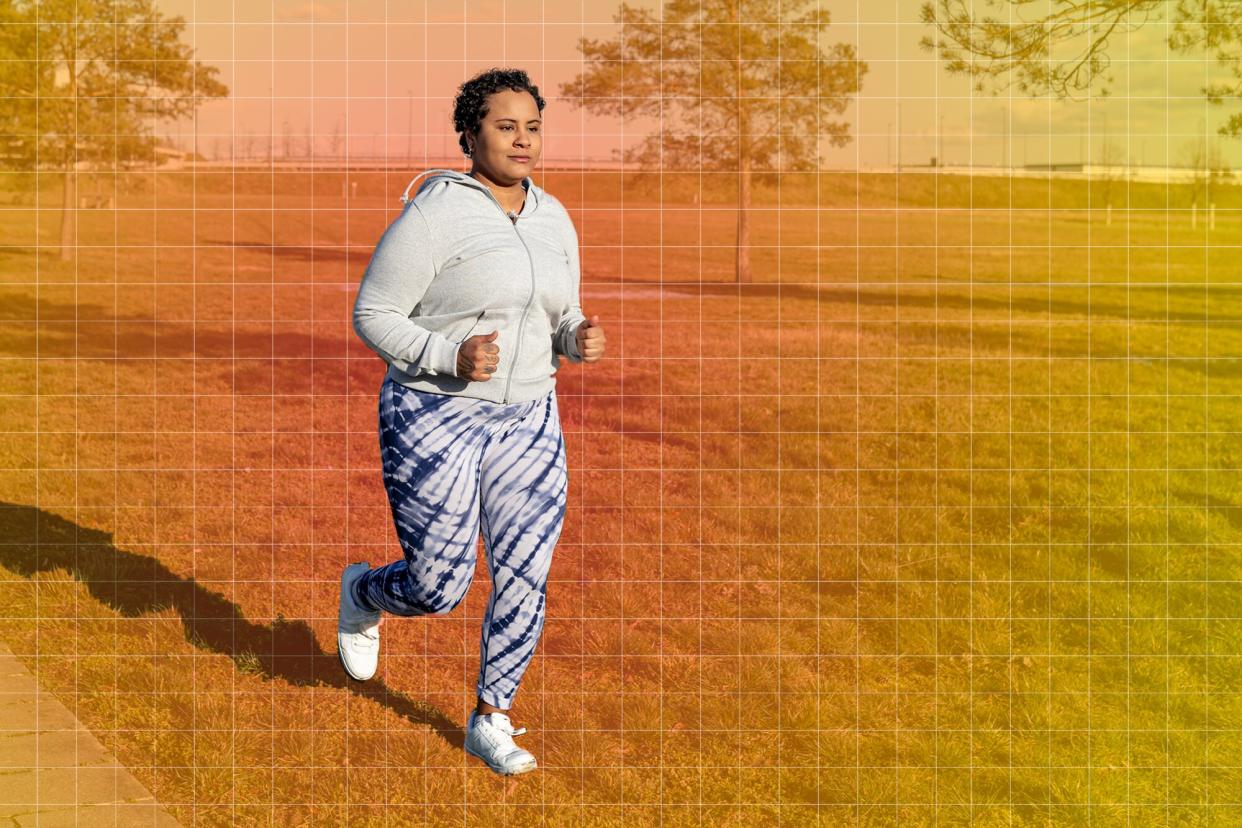A New Mayo Clinic Diet Report Shows People's Motivation for Weight Loss Has Changed—Here's Why That Matters

Getty Images
Weight loss has always been a numbers game: numbers on the scale, number of calories in a meal, number of dollars spent on the latest fad diet. But a recently released New Mayo Clinic Diet report reveals that not concentrating on the numbers may be your best bet for getting healthier in the long term (you can take the Mayo Clinic Diet Assessment yourself here).
Related: These Are the Best and Worst Diets of 2022, According to U.S. News and World Report
In the survey of over 200,000 respondents, 83% stated that they value health above all other aspirations for weight loss—including physical appearance. They also reported being more intrinsically motivated to lose weight for health purposes, rather than being externally motivated by things like others' perceptions of them.
This change in mindset is one health professionals have been promoting for decades. While diets may help you change the numbers on a scale in the short term, long-term weight maintenance and overall health is dependent on lifestyle changes that can be indefinitely sustained. Over 50% of survey participants had tried and failed to stick with restrictive fad diets. This reflects people being more ready for a sustainable and healthy approach to weight management.
The Mayo Clinic Diet is a program that reflects several tenets of sustainable healthy lifestyle change. Conceived in 2010, it recently added new features to make the program more accessible to a wider range of people. It now includes a physical activity tracker, food tracker, habit optimizer, new meal plan options (including Mediterranean, keto, vegetarian and high-protein), recipes and even a Facebook support group.
Donald D. Hensrud, M.D., M.S., medical director of the Mayo Clinic Healthy Living Program, describes the program as "evolutionary, not revolutionary." The focus is on improving diet and exercise habits for better overall health, rather than trying to fit into a certain clothing size or weight range. He shares that people who focus exclusively on a goal weight often set themselves up for failure. "Paradoxically," Hensrud says, "when people focus on a plan versus an outcome goal, it becomes easier to lose weight."
Seeking a lifestyle change rather than a quick-fix diet is key. The Mayo Clinic Diet takes clients through two phases: Lose it and Live it. In the Lose It stage, clients work to break 15 habits right away, all changes that are backed by evidence. "The most challenging habit is no eating while watching TV, and committing to exercising for as much time as you spend in front of the TV," says Hensrud. "Initially, that habit-breaker scares people, but they see quick results and the results motivate and empower them."
After adopting new, positive habits, clients move on to the Live It stage that cements these habits and aids in weight maintenance, which is often the hardest goal for clients to accomplish. It's one thing to lose weight, but it's another to keep it off long-term. This stage includes learning how to make healthy choices within each food group and choosing a meal plan that is nutritious and chock-full of vegetables.
Read on: How Much Weight Can You Really Lose in a Month?
So what can you do right now to start a healthy wellness journey? The key findings suggest the following:
Attitude is everything. Create a realistic plan that does not require perfection so you can enjoy your successes and grow your motivation.
You will have greater success if you focus on the process of achieving good health, not on the number on the scale. Take it one day at a time, one habit at a time, and the weight loss is more likely to follow.
An improvement in diet and exercise will help improve your health, so even when your weight loss doesn't meet your expectations, know that you have still done your body good.
Take your own health assessment. After all, it's important to know where you're starting in order to plan for where you're going. Visit the Mayo Clinic Diet Assessment here.
Hensrud reminds us that the mindset change exhibited in the survey results will ultimately help lead people to success. "This doesn't have to be drudgery," he emphasizes. "Managing weight should be practical, realistic and enjoyable enough to be sustainable."

